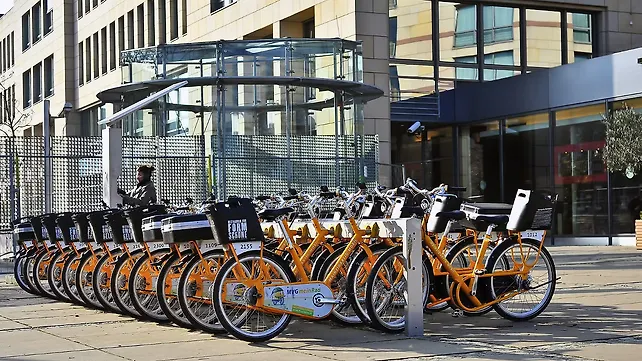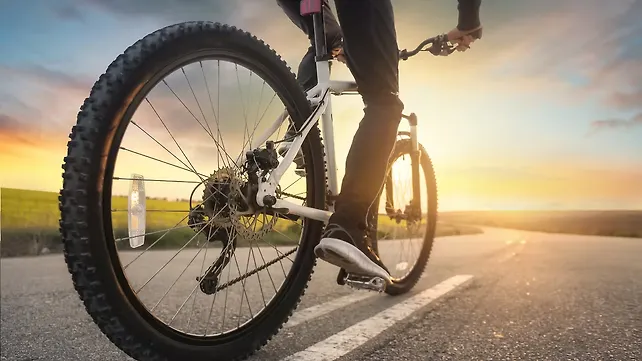
The mobility of people, goods and services has undergone a massive transformation across the globe in the last few years. First and last mile connectivity, ride sharing an subscriptions have changed the way people think about their movement on earth. One such concept, which has the potential to disrupt short distance travel, is micro-mobility.
Cities around the world are quickly growing in size and population. In fact, projections show that by 2050, an additional 2.5 billion people will reside in urban areas globally. With most cities already dealing with dangerous levels of pollution and gridlocked streets, micro-mobility could solve a handful of problems.
A 2018 report by the Transportation Research and Injury Prevention Programme (TRIPP) at Indian Institute of Technology Delhi said the proportion of workers in India, who travel a distance of less than 5 km is almost 70% for both rural and urban districts.
In India, many start-ups such as Yulu, Bounce, Rapido and Mobycy have lined up to grab this rising business opportunity. Among many use cases, micro-mobility services increase access to public transportation, reduce the number of cars on the road, lower our environmental footprint, and provide convenient methods of transportation for short trips — all being cost-effective.
Bicycles as a solution
Bicycles can play an important role in the micro-mobility space. Not only are bicycles cost-effective, they also offer great health benefits and recreation, making them more viable than other micro-mobility modes.
The culture of biking for fitness, health and recreation has been catching up rather fast among India’s urban population. Cycling is an excellent way to boost health, lose weight and build immunity, apart from being a remarkable recreation routine that reduces stress, and gives the rider a natural boost to mental health, also known as ‘cyclist’s high’.

According to CRISIL, in the five fiscal years through 2019, bicycle sales volume logged a modest compound annual growth rate of 5%. In FY20, it contracted a massive 22% as government purchases plunged and a large bicycle manufacturer downed shutters. However, the last fiscal saw a turn for the better.
CRISIL estimates India’s bicycle industry to grow 20% this fiscal, with sales likely to touch 1.45 crore units compared with 1.2 crore units last fiscal.
Nitesh Jain, Director, CRISIL Ratings said, “The pandemic-induced constraints on fitness and leisure options increased the demand for bicycles, especially in the premium and kids segments. Strong growth in these limited the overall decline in sales volume to just 5% in FY21 despite a further reduction in government purchases. The momentum is likely to continue this fiscal year too, given the on-going second wave of the pandemic, and should lead to a 22% growth for the premium and kids segments.”
India is the second-largest manufacturer of bicycles in the world. The industry is classified into four segments – standard, premium, kids and exports. While the demand for premium and kids bicycles is on a rise, the demand for standard bicycle has been stalled as they are largely procured from the government orders.
Pankaj M Munjal, Chairman and Managing Director, HMC, a Hero Motors Company echoed similar thoughts. Ever since the pandemic broke out, the demand for premium bikes has soared in urban India – both in metropolitan cities as well as in Tier II and Tier III cities.
“The pandemic and the lockdown has adversely impacted the fitness routine of many and with states ‘unlocking’, this is the time to encourage more people to hit the roads with bikes to nurture a greater culture of cycling not just for recreation and leisure, but also for other purposes, such as short and medium distance trips for which many drive a car,” he said.

On the rising demand for bicycles, Sukanta Das, CEO, Firefox Bikes said the company has clocked a 10X increase in online sales since May 2020, and the growth for premium bikes has been six times more compared to pre-COVID times. “We are currently looking at a minimum 100% growth in volumes in FY22 as the strong demand for bicycles that started during the lockdown last year is set to continue for the next two years,” Das said.
Industry experts feel that to make bicycles the main mode of transport, India needs to have proper infrastructure – bicycle tracks, primarily – which remains the main challenge for this industry. “Across our cities, we need dedicated cycling lanes, bicycle parking slots, car-free days, car-free zones and other incentives for cyclists, so that more people of all age groups are motivated to take up cycling,” Munjal said.